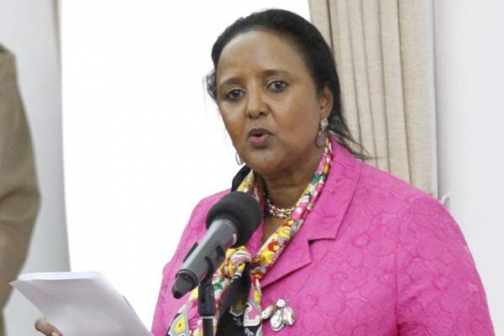×
The Standard e-Paper
Home To Bold Columnists

The future of the East African Community (EAC) was once again put to test after some member States were reported to have voted against Kenya’s Amina Mohamed for top African Union post, this week.
During the 28th Ordinary Summit of the Assembly of Heads of State and Government of the African Union in Addis Ababa some EAC member states reportedly broke ranks with their peers, voting for Chad’s Moussa Faki Mahammat for the Chair of the African Union Commission, a decision that might have cost Kenya the seat.